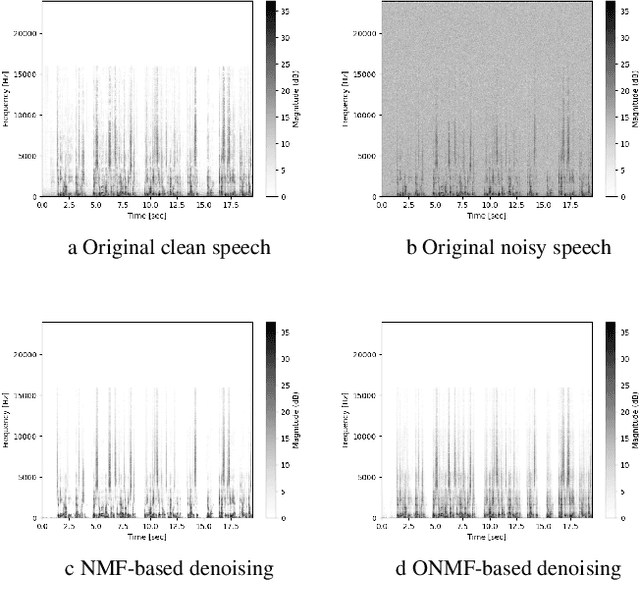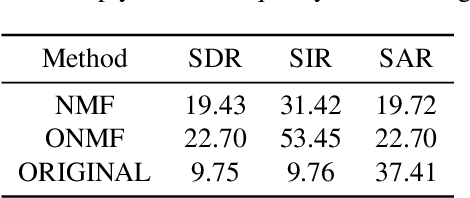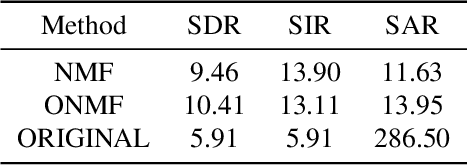Andrew Sack
On audio enhancement via online non-negative matrix factorization
Oct 07, 2021



Abstract:We propose a method for noise reduction, the task of producing a clean audio signal from a recording corrupted by additive noise. Many common approaches to this problem are based upon applying non-negative matrix factorization to spectrogram measurements. These methods use a noiseless recording, which is believed to be similar in structure to the signal of interest, and a pure-noise recording to learn dictionaries for the true signal and the noise. One may then construct an approximation of the true signal by projecting the corrupted recording on to the clean dictionary. In this work, we build upon these methods by proposing the use of \emph{online} non-negative matrix factorization for this problem. This method is more memory efficient than traditional non-negative matrix factorization and also has potential applications to real-time denoising.
 Add to Chrome
Add to Chrome Add to Firefox
Add to Firefox Add to Edge
Add to Edge